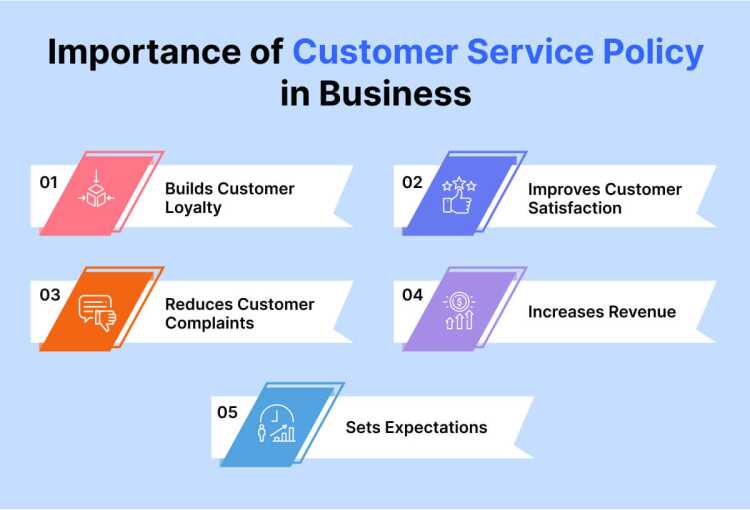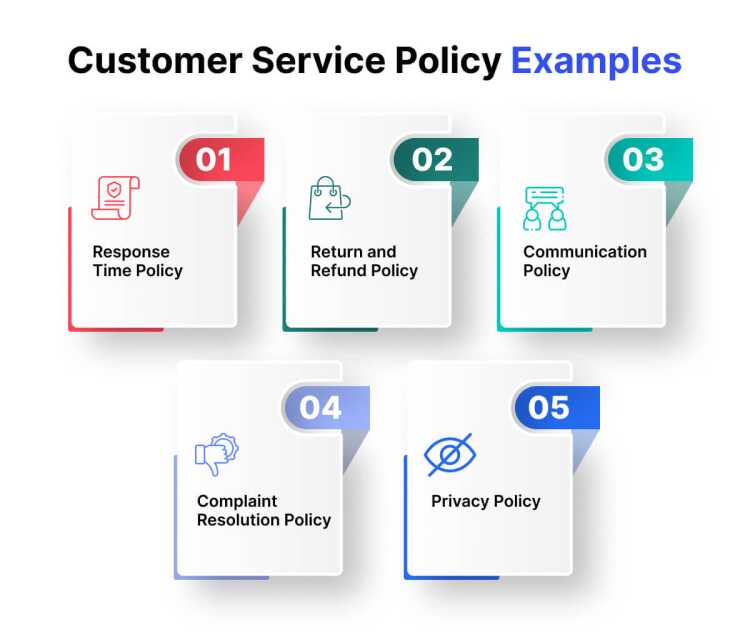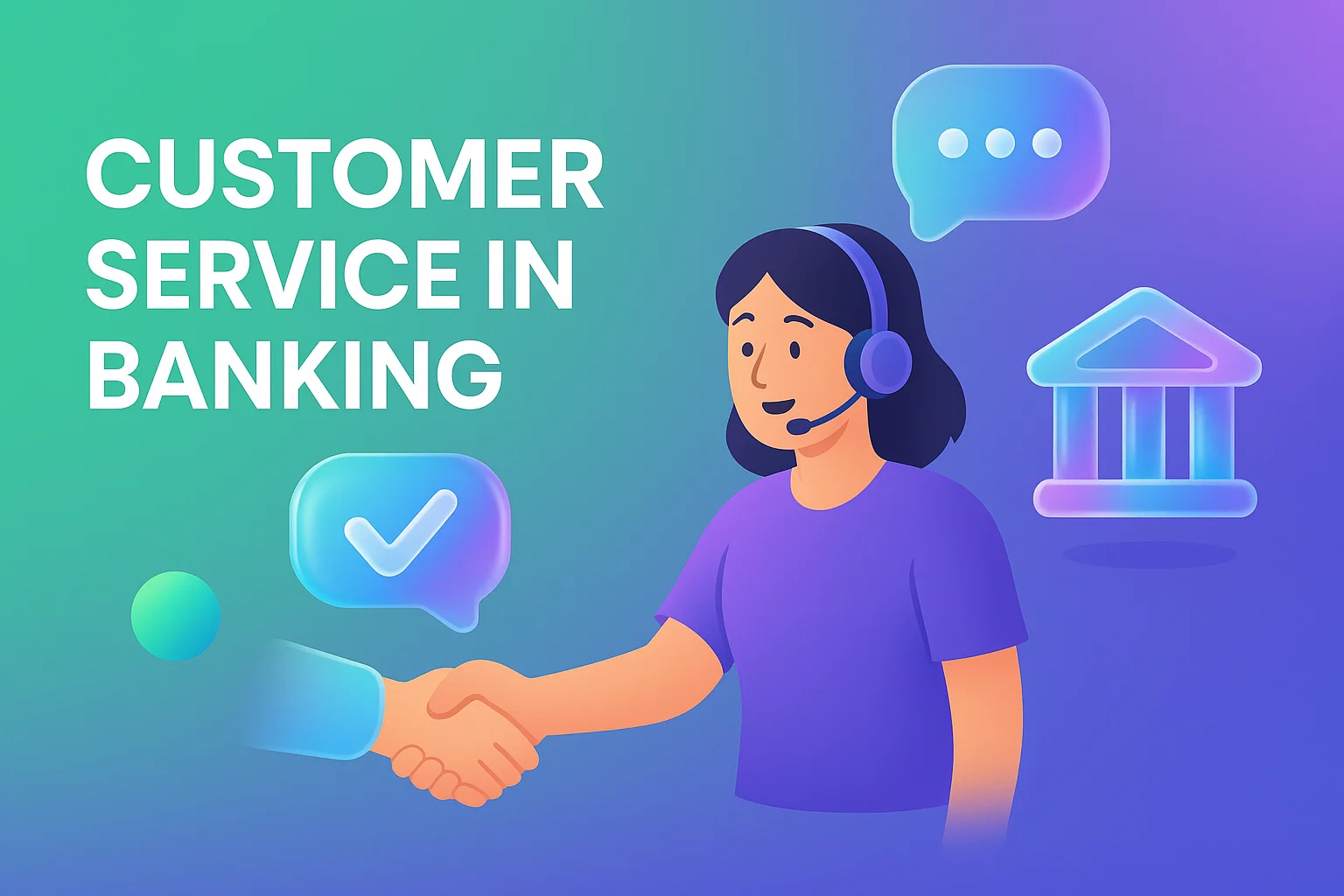Customer Service Policy Examples & Benefits
- March 14, 2023
- 7 mins read
- Listen

A well-crafted customer service policy should not only outline how the company plans to address customer issues and complaints but also how it plans to proactively anticipate and prevent them in the first place. In today’s competitive marketplace, excellent customer service can be the key differentiator that sets a business apart.
Whether you’re a small business owner just starting out or a seasoned executive looking to revamp your company’s customer service strategy, read on to discover how you can improve your customer service and grow your business!
What is a Customer Service Policy?
Customer service policy is all about the guidelines and procedures that a company creates to ensure that its customers receive high-quality service and support. The policy outlines the company’s commitment to meeting customer needs and resolving their issues in a timely and effective manner.
A well-designed customer service policy should cover all aspects of customer interaction, from initial inquiries and product/service purchases to post-purchase support and follow-up. It should also provide clear instructions on how customers can reach out to the company for assistance and how their concerns will be handled.
It can help a company to build a loyal customer base, improve its reputation, and ultimately, drive sales and revenue growth. It can also help to minimize negative customer experiences and complaints, by ensuring that all customer interactions are handled professionally and consistently.
Why Customer Service Policies Are Important?
Customer service policies are essential for any business that wants to build a positive reputation and cultivate a loyal customer base.

Let’s take a look at some of the key reasons why customer service policies are important:
- Builds customer loyalty: A well-designed customer service policy can help to create a positive customer experience and build loyalty. Customers are more likely to return to a business that they feel values their needs and takes the time to provide excellent service.
- Improves customer satisfaction: By having clear policies in place, businesses can ensure that customers are consistently satisfied with their interactions with the company. This can lead to positive reviews, word-of-mouth recommendations, and increased customer retention.
- Reduces customer complaints: By proactively addressing potential customer issues and providing prompt and effective resolutions, businesses can reduce the number of complaints they receive. This can help to prevent negative reviews and limit the damage to the company’s reputation.
- Increases revenue: Satisfied customers are more likely to make repeat purchases and recommend the business to others. It can lead to increased revenue as well as immense growth for the company.
- Sets expectations: A customer service policy sets clear expectations for how customers will be treated and how their concerns will be addressed. This can help to ensure that all employees are consistent in their approach to customer service and provide a high level of service across the board.
How Do You Develop a Customer Service Policy?
If you want to develop a solid customer service policy for your organization then you have to follow a set of guidelines and procedures to ensure that it delivers high-quality customer service.

Let’s take a look at some steps to help you develop a customer service policy:
1. Identify the Target Audience
Before creating a customer service policy, it’s important to identify the target audience you’ll be serving. This could be your current customers, potential customers, or a specific group of customers based on demographics or behavior. Understanding your target audience will help you create a policy that is tailored to their needs and preferences.
2. Define the Scope
Once you’ve identified your target audience, you need to define the scope of your customer service policy. This involves outlining the specific areas of your business that the policy will cover, such as phone support, email support, social media, returns, and exchanges.
3. Gather Input
To create an effective customer service policy, it’s important to gather input from a variety of sources. This could include feedback from customers, data from customer service interactions, and input from employees who have experience dealing with customers.
4. Define Customer Service Principles
Based on the input gathered, you can define the customer service principles that will guide your policy. This involves identifying the values and beliefs that will drive your customer services interactions, such as empathy, respect, and responsiveness.
5. Develop Standards
With your customer service principles in place, you can develop specific standards that will govern your interactions with customers. This could include response times for different channels, resolution times for different types of issues, and quality standards for customer service interactions.
6. Define Procedures
Once you’ve established your customer service standards, you need to define the procedures that will help you meet those standards. This involves outlining the specific steps that employees should follow when interacting with customers, including how to handle different types of issues and how to escalate problems when necessary.
7. Develop Training and Development Programs
You need to develop training and development programs to help employees learn and implement your customer service policy. This could include training on communication skills, conflict resolution, and product knowledge, as well as ongoing coaching and feedback to help employees improve their customer service skills over time.
Examples of Customer Service Policy
A business can implement many different types of customer service policies, depending on its industry, size, and customer base.

Let’s take a look at some examples of customer service policies that businesses can consider:
- Response Time Policy: This policy outlines the maximum amount of time it should take for a business to respond to a customer inquiry or complaint. This could include responding to emails or messages within 24 hours or providing phone support within a certain timeframe.
- Return and Refund Policy: This policy outlines the terms and conditions for returning or exchanging a product, as well as the process for issuing refunds. This policy should be clear and transparent. So, customers know what to expect if they are unsatisfied with their purchase.
- Communication Policy: This policy outlines how the business will communicate with customers, including the tone and language used in all communications. It may also outline the specific channels through which customers can contact the business, such as email, phone, or chat support.
- Complaint Resolution Policy: This policy outlines the process for addressing customer complaints and concerns, including how to escalate complaints if they are not resolved satisfactorily at the first level of support. It should also include guidelines for offering appropriate compensation or resolution to customers.
- Privacy Policy: This policy outlines how the business handles customer data and protects customer privacy. It should be transparent and clearly state what information is collected, how it is used, and how it is protected.
Benefits of Customer Service Policy
A well-defined customer service policy can offer numerous benefits to a business. Here are some of the key benefits:
- Improved customer satisfaction: A clear policy can help businesses provide consistent and satisfactory service to their customers, leading to improved customer satisfaction.
- Enhanced brand reputation: It can help businesses build a positive reputation and brand image by providing quality service and addressing customer concerns promptly.
- Increased customer loyalty: When customers feel valued and receive satisfactory service, they are more likely to remain loyal to a business and recommend it to others.
- Better communication with customers: It can help businesses communicate more effectively with their customers and better understand their needs and concerns.
- Increased efficiency: A well-defined policy can help businesses streamline their customer service processes, making them more efficient and cost-effective.
Conclusion
Having a well-defined and customer-oriented service policy is crucial for any business that wants to thrive in today’s competitive market. It not only helps in retaining existing customers but also in attracting new ones by creating a positive brand image.
A good customer service policy should include clear guidelines on how to handle customer inquiries, complaints, and feedback, as well as set expectations for response times and problem resolution. It should also empower employees to go above and beyond in ensuring customer satisfaction while maintaining a professional demeanor.
Customer service policy is not just a document but a commitment to providing excellent customer service, and it should be at the heart of any business’s operations.
Frequently Asked Questions
Generally, a customer service policy outlines how a business interacts and deals with a customer’s needs and wants.
To create a customer service policy you should:
- Understand the goals for your business
- Analyze customer needs
- Set customer goals to fulfill business objectives
- Create guidelines for employees and train them on new policies
- Have the necessary plan for returns, replacements, or reimbursements.
A customer service policy should always have guidelines that line up with business and customer service goals. Also, it should outline a set of actions for situations and have clear expectations from employees.
A customer service policy should be updated regularly. That ensures you are always up to date on industry standards and are serving customers with modern rules and not outdated ones.



